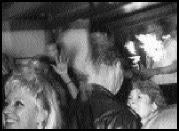AFTER WEEKS of tense debate, the Seattle City Council’s lopsided vote Monday approved an $86 million low- income housing levy ballot proposal that, in the words of housing committee chair Richard McIver, made everyone “equally unhappy.”
Richard Conlin failed to get mortgage assistance included; Peter Steinbrueck ended up voting for a proposal with far more assistance for home buyers than he would have liked; and McIver wound up agreeing to millions more for operations and maintenance than he originally supported.
Most of the debate over the levy—the version approved was the 18th floated around the council in recent weeks— was in the details. $95 million or $86 million? Eight years or seven? And—most contentiously—how much for homeowner assistance, and how much for low-income rental housing?
But while most of the council members may have been less than thrilled by the measure, only Judy Nicastro found enough fault in the compromise proposal to vote against it. Nicastro said she was “saddened” at the council’s decision to devote $7.8 million—or just over 9 percent—of the levy package to assist low-income home buyers. “The need [for low-income rental housing] is simply too great” to devote millions to assist people making up to 80 percent of median income, or $54,400 for a family of four, in buying property, Nicastro said. Most council members, Steinbrueck included, considered the amount in the levy a compromise between those who wanted far more for home-buyer assistance (such as Mayor Greg Nickels) and those who wanted far less.
The council was also cautious— perhaps excessively so—in determining the levy total. A poll done in March indicated voters would support a levy that added as much as $86 to their annual property tax bill. But under the proposal that voters will face in September, the average homeowner would pay $49 a year to help fund low-income housing in the city, an increase of $14 over the current housing levy. Still, with billions of dollars in transportation taxes hogging the November ballot, the council wasn’t taking any chances.
The seven-year tax proposal also includes $56 million for low-income rental housing production, $2.8 million for emergency rental assistance for very low-income tenants, and $7.8 million for maintenance of existing housing.
Erica C. Barnett







